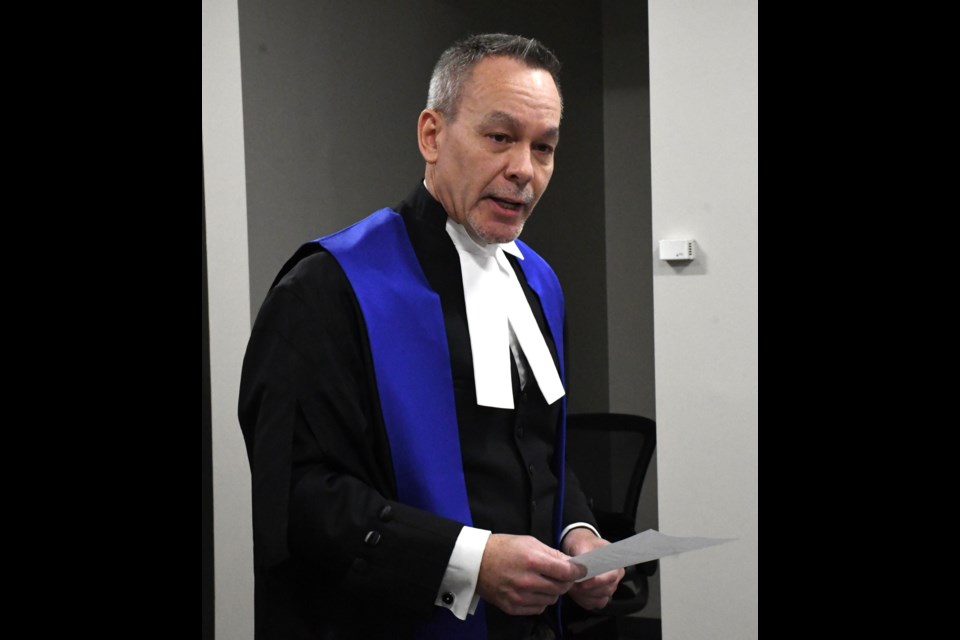MOOSE JAW — A new group of police commissioners was sworn in during the board’s January meeting, with three city council members and one citizen being the new faces around the table.
The board held the swearing-in ceremony in the Moose Jaw Police Service’s classroom on Jan. 8, with Judge David Chow officiating and leading each member through his or her oath of office.
For 2025, the Board of Police Commissioners is comprised of Mayor James Murdock, councillors Patrick Boyle and Jamey Logan, new citizen Don Hand and returning citizen Kelly Baxter.
Logan took his oath of office virtually the day before because he was out of the country.
Before administering the oaths, Judge Chow offered his perspective about the role and importance of the board based on his experiences as a lifelong Moose Javian and as a lawyer who adjudicated police discipline hearings for decades.
“You have been chosen by your peers and by your civic leaders to serve on what is without a doubt a high-profile and prestigious board (that is) available to the public and elected members,” he said.
The board has a responsibility to oversee the Moose Jaw Police Service’s budget, which represents roughly 25 per cent of the City of Moose Jaw’s total budget, which is a significant amount that residents pay as taxpayers, the judge continued. Furthermore, the police are responsible for the community’s collective and individual safety, including suppressing the drug trade, impaired driving and violence.
“In order for the police to effectively do (that), their honesty, their integrity and (their) fiscal efficiency must be scrutinized,” Judge Chow remarked.
Beyond section 44 of The Police Act, the average citizen has no practical way to hold the police service accountable, and while citizens can lodge complaints against specific officers for unacceptable behaviour, they have very little recourse otherwise, he said.
That is where the police board comes in, as it can hold the police service accountable through the development and approval of policies and procedures, while commissioners have the power — and the duty — to oversee and scrutinize the culture within the agency, the judge continued.
Moreover, the board can impose checks and balances on the police service’s spending and ensure a healthy work environment exists for all officers.
Judge Chow noted that sections of The Police Act and The Public Inquiries Act grant the board some authority that, while not unlimited, is expansive.
“I encourage you to not delay in exercising that authority when appropriate to do so,” he added. “You are the body that the public looks to for protection when they feel — when members themselves feel — the policing body has lost its direction.”
After the swearing-in ceremony concluded, the board elected Murdock as chairman and Logan as vice-chairman.
The next police board meeting is Wednesday, Feb. 19.




